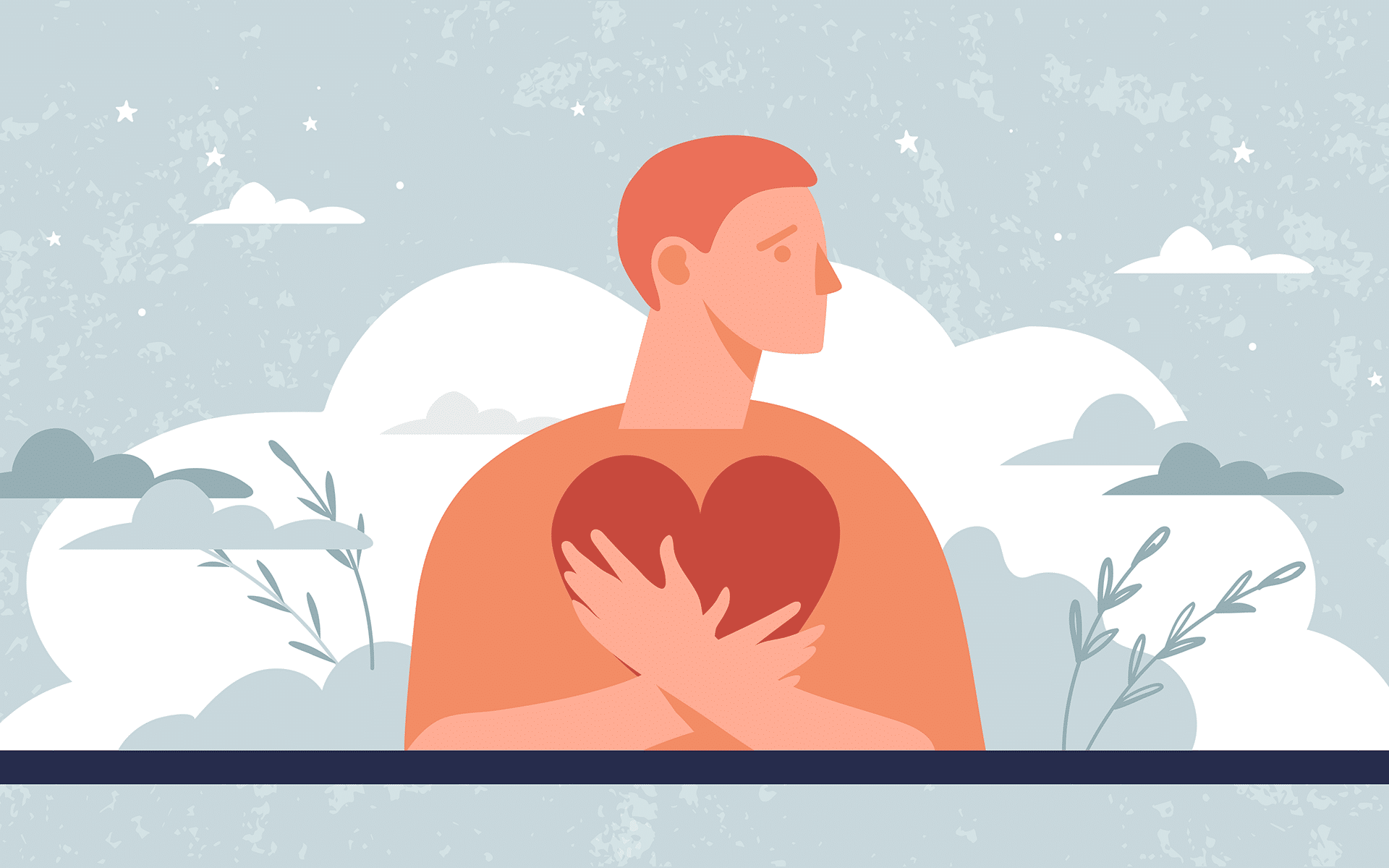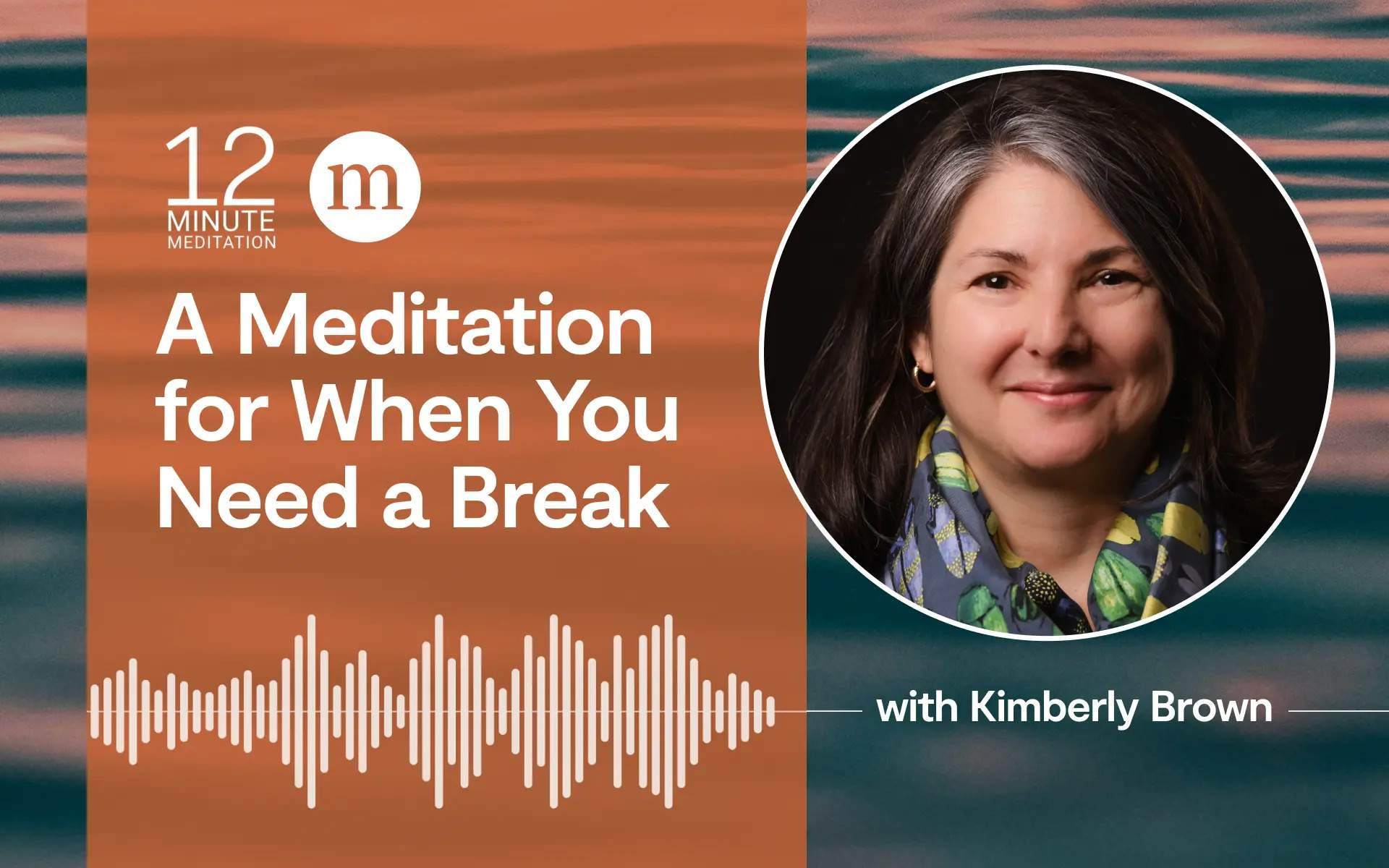Let’s talk about forgiveness.
I’ve been a practitioner and teacher of mindfulness for over 30 years. In my experience, much of what is taught about forgiveness creates a false division. We tend to emphasize the tender-inner-reflective processes of “forgive and forget” forgiveness, almost to the exclusion of outer “remember and engage” forgiveness—what, with a bow to Kristin Neff, I call “fierce” forgiveness. Neff is a mindful self-compassion pioneer and associate professor of educational psychology at the University of Texas at Austin. She enhanced the profoundly beneficial practices of tender self-compassion with what she calls “fierce self-compassion.” In this article, I encourage all of us to do the same with our forgiveness practice, embracing “fierce forgiveness,” and ultimately embodying a radical, both/and forgiveness practice.
Rachael Denhollander, one of the hundreds of gymnasts abused by sports osteopath Larry Nassar, exquisitely embodies the grace and power of combining tender and fierce forgiveness to create real, robust, radical forgiveness. She says “I release bitterness and anger and a desire for personal vengeance. It does not mean that I minimize or mitigate or excuse what he has done. It does not mean that I pursue justice on earth any less zealously. It simply means that I release personal vengeance against him.”
“Forgiveness must be coupled with justice.”
Rachael Denhollander
She goes on to say, “Forgiveness must be coupled with justice,” and, “the extent that one is willing to speak out against their own community is the bright line test for how much they care and how much they understand.” Within the context of Denhollander’s interview, I believe she means how much one cares and understands about harm, injustice, suffering, and what we in the mindfulness community call “right action.”
This piece is intended to be personal, raw and messy, not just for me, but also you, dear reader. It’s an invitation for each of us to “get real” about the often excruciating rigor of responsive forgiveness practice.
Please know it’s essential that each person, especially victims of trauma, determine for themselves if, when, and how they wish to forgive. If a friend, family member, therapist, or any other probably well-intentioned person pressures you to forgive, it may minimize the harm you experienced and minimizing is a form of retraumatization.
My Evolving Forgiveness Practice
When I first encountered Denhollander’s writing on forgiveness in 2018, I didn’t know that I was being emotionally and spiritually abused. In August of 2020, a neuropsychologist determined that my 31-year relationship with my then life coach/spiritual teacher was a relationship of undue influence. Simply put, this means the teacher had been coercing and controlling me to act for her benefit and to my detriment.
The moment the neuropsychologist uttered the phrase “relationship of undue influence,” I experienced a soul-shattering recognition of decades of abuse. Heartbreakingly, I also realized that I was responsible for others, including a loved one, being unduly influenced by the same teacher. At the time of this writing, the teacher’s influence on my loved one continues and my loved one is estranged.
My healing journey compelled me to examine how we in the mindfulness community typically teach forgiveness, and to explore how fierce, outer, engaged forgiveness complements the tender, inner, reflective forgiveness practices our community (and society in general) so often emphasizes.
I chose to use this personal experience to wrestle with what it means to forgive. My healing journey compelled me to examine how we in the mindfulness community typically teach forgiveness, and to explore how fierce, outer, engaged forgiveness complements the tender, inner, reflective forgiveness practices our community (and society in general) so often emphasizes. I deeply value tender forgiveness practice. And I now believe that it’s most skillful when it’s discerningly balanced with fierce practice.
With that context, let’s explore the practice of forgiveness. Below I offer quotes from esteemed teachers in the mindfulness community, paired with my reflections and questions.
Forgiveness and Anger Can Coexist
My dear colleague Christiane Wolf, a physician and mindfulness teacher, writes:
Forgiveness is a practice of freeing your own heart from the prison of pain and resentment.… Whatever the cause or the content, not being able to forgive hurts. Sure, anger can feel good at times. In the beginning, it can give us energy to speak up or to make a change, but then what?
I’ve absolutely experienced the value of freeing my own heart, and the value of allowing animating anger to motivate wise action.
As Denhollander, other courageous gymnasts, the leaders of the #MeToo, BLM, LGBTQI+, gun safety, and climate protection movements all demonstrate, speaking out, naming names, seeking justice, and working for change are absolutely necessary to address the injustices of our times. I believe that when Wolf asks, “but then what?” the answer is that we must practice discernment to determine if, when, and how engaged action can hold perpetrators accountable, support those who have been unjustly harmed, and safeguard our children, communities, and planet. In combination, freeing forgiveness and empowered anger can fuel necessary and compassionate action.
Remembering, Forgiving, and Taking Action
Author and renowned loving-kindness meditation teacher Sharon Salzberg writes:
Forgiveness is a process. Releasing our grip on anger and resentment can actually be an act of self-compassion.… Expecting [forgiveness] to be a singular action—motivated by the sheer imperative to move on and forget—can be more damaging than the original feelings of anger.
For me, anger and resentment are distinct. Anger is a natural, healthy response to harm and injustice. Resentment is suppressed anger, and resentment is what’s damaging.
I define mindfulness as paying attention here and now with kindness and curiosity so that we can choose our behavior (respond). Both the Mindfulness Based Emotional Balance, and the Cultivating Emotional Balance curricula describe emotions as waves. Emotional waves are powerful, natural forces that crest and rumble toward shore.
Jon Kabat-Zinn says, “you can’t stop the waves but you can learn to surf.” Using these wave analogies, let’s look at Sharon’s comments. Attempting to stop the natural waves of anger and forcing ourselves to forgive can cause damaging resentment. And, with practice, we can learn to ride the wave of anger into wise action.
A truly self-compassionate complement to forgiving and forgetting is remembering the harm we have experienced, honoring our anger, and choosing our behavior—including if, when, and how we want to take action.
When Tender “Forgiveness” Becomes Emotional Bypassing
Mindful leadership expert Carley Hauck writes:
The second layer of forgiveness is external: focusing on our experience of gratitude for the lessons we learn along the way.… [Forgiveness] means acknowledging the grievance and the feelings it creates, acknowledging that people are wounded, flawed, and messy—including myself, putting appropriate boundaries in place, letting go, and moving on.
Let’s tease apart this view of forgiveness. I consider gratitude to be a tender, inner element of forgiveness. And I’m deeply concerned that we, in the mindfulness community, often mistake the inner elements of forgiveness for the outer. This error is compounded when we fail to balance the practice of tender forgiveness with fierce, engaged elements.
I appreciate Carley’s invitation to cultivate gratitude. Yet I believe we risk condoning spiritual bypassing when we suggest that someone who has been grievously harmed simply acknowledge the grievance and the feelings, let go, move on, and be grateful, without also considering wise action.
Spiritual bypassing is a form of victim blaming that retraumatizes victims by minimizing their suffering. If someone has been harmed and is suffering, the harmed person, or someone else can “bypass” the harmed person’s pain by suggesting that the harmed person won’t suffer if they simply “let go and move on.” In a secular context, minimizing another’s suffering is sometimes called emotional bypassing. By any name, bypassing our own, or another’s suffering is the antithesis of compassion.
Yes, as Carley notes, we all (myself included) are wounded, flawed, and messy. I’ve absolutely caused harm, particularly in recommending the former life coach to patients, friends, and family.However, we should not be seduced into equating everyday harms (like a family member or colleague making a hurtful comment), with more significant harms or egregious serial abuse. When choosing how to respond to various harms, including choosing the balance of tender and fierce forgiveness, it’s wise to consider the wrongdoer’s intention, whether they have a pattern of repeated harm, demonstrate remorse, and are willing to take responsibility and make amends.
Inaction Can Perpetuate Harm
Author and longtime mindfulness teacher Jack Kornfield says, “Forgiveness is letting go of all hope of a better past.” So: is it appropriate to practice only tender forgiveness if you, someone you love, or another person is being harmed in the present? Or is the present a time to respond with unshakeable clarity, and say, “No, not on my watch!”?
When we focus solely on tender “forgive and forget” forgiveness, we risk precluding wise action such as holding perpetrators accountable, seeking legal redress, or changing policy and law. Rachael Denhollander, Simone Biles, Aly Raisman, the hundreds of other sur-thrivors of Nassar’s abuse, the friends and family of George Floyd, Breonna Taylor, Trevor O’Brien, Teresa Butz, and 10-year old Maite Rodriguez and her fellow Uvalde victims demonstrate that seeking justice and advocating for change can be empowering for those who speak out, healing for victims who choose privacy, and protective of future potential victims. If these advocates had forsaken speaking out and seeking justice even more people would have been harmed.
If you’ve been harmed, it’s essential that you first protect your heart and mind, and attend to your own healing.
And it’s worth repeating that if you’ve been harmed, it’s essential that you first protect your heart and mind, and attend to your own healing. Then, if you choose, take action to hold those who harmed you accountable, support others who have been harmed, and protect those who are currently being harmed, or are at risk of being harmed in the future.
Putting Yourself in the Other Person’s Shoes?
My beloved friends psychologists Elisha and Stephanie Goldstein write:
It’s important to give yourself permission to acknowledge and honor the pain that’s very real for you.… Flip your focus from being the victim to putting yourself in the other person’s shoes. For example, consider the life the person lived that led them to this hurtful action.
Having undertaken this process, I can say it’s both excruciating and liberating. Honoring the pain means grieving my years of emotional separation from and judgment toward friends and family; the lost time, energy, devotion and opportunity; the fantasy of who I believed the former teacher to be and who I thought that made me; and the agonizing continued estrangement of a loved one.
Despite the devastating harm the teacher caused and continues to cause, I have put myself in her shoes. I have true compassion for the causes and conditions that underlie her behavior. She frequently described her experience of being cruelly neglected by her narcissistic mother. Her abusive behavior is likely a result of her unhealed early childhood trauma, as described by cult recovery expert Dan Shaw, in his book Traumatic Narcissism: Relational Systems of Subjugation. And I forgive her.
But forgiving her doesn’t preclude me from holding her accountable and doing all I can to ensure that she doesn’t continue to harm others. In other words, it doesn’t preclude practicing fierce forgiveness.
Radical Forgiveness
The singer/songwriter Brandi Carlile (whose pastor refused to baptize her because she is gay) says:
[Forgiveness] is a word that I think is kind of evangelicalized… or glossed over by kind of a “hashtag blessed” way of looking at it. It’s a really radical and ugly, difficult process that, you know, great beauty comes from.… Forgiveness is so radical and so filthy, and it gets made out to be such a casual concept, when really it might be one of the deepest things that we do as humans—to forgive for really deep harm. But there is a publicness, actually, that almost has to take part in the forgiveness thing. It’s not a neoliberal, disenfranchised thing that you can do by yourself quietly in a room.
I absolutely agree with Brandi: real forgiveness is radical, ugly, and often public. I’ve engaged fully in this process—been pummeled by waves of grief and anger; released resentment; and cultivated compassion for all who suffer. And now—with a clear mind and a peaceful heart—I (as Denhollander urges survivors to do) am speaking out, seeking justice, and devoting myself to protecting others from similar abuse. I’m practicing radical, both/and forgiveness.
Mindfulness Practices for Radical Forgiveness
Radical forgiveness practice is deeply personal, dynamic, and responsive. It evolves moment-to-moment, and involves facing human messiness–our own and others’. In any given moment you may find that it’s wisest to shift your focus to other areas of your life, to simply feel your feelings, to let go of festering resentment, and/or to take empowered action.
Radical forgiveness is not theoretical.
Radical forgiveness is not theoretical; it only has value when applied to real life situations. Specifics—the person’s intentions, whether they demonstrate a pattern of repeated harm, their willingness to take responsibility and make amends—matter.
Thus, I encourage you to pause and reflect on a time that someone harmed you, a loved one, or a friend. To begin your radical forgiveness practice, choose wisely the level of harm you want to work with. As with tender forgiveness practice, you may want to begin with a minor harm, and then gradually work up to more significant harms.
Holding a specific example in your mind and heart, consider the following suggestions for engaging in radical, both/and forgiveness practice. These suggestions aren’t sequential; some or all may be helpful to you simultaneously and you may benefit from revisiting each of them over time. Choose wisely moment-to-moment which elements of this practice you wish to engage in.
A Mindfulness Practice to Forgive Others
- Let yourself be real and messy.
- Acknowledge the full extent of the harm.
- Take as much time as you need to feel your feelings, and offer yourself deep compassion.
- Consider seeking skilled, ethical, trauma-sensitive support.
- Remember that only you can determine if, when, and how forgiving may be healing for you. This is particularly important if you encounter people or teachings that assert forgiveness is necessary for your healing, or pressure/guilt you into forgiving.
- Consider if it feels healing to practice forgiving the person who harmed you.
- If and when you feel ready, gently consider the causes and conditions that resulted in the person causing you harm.
- Ask yourself how you want to embody both the tender and fierce elements of forgiveness.
- Consider what it would mean, and how it would feel, to seek justice and speak out with a clear mind and a peaceful heart.
A Mindfulness Practice to Forgive Yourself
- Let yourself be real and messy.
- Acknowledge the full extent of the harm.
- Take as much time as you need to feel your feelings, and offer yourself deep compassion.
- Consider seeking skilled, ethical, trauma-sensitive support.
- Consider if it feels healing to practice forgiving yourself.
- If and when you feel ready, gently consider the causes and conditions that resulted in you causing harm.
- Ask yourself how you want to embody both the tender and fierce elements of self-forgiveness.
- Hold yourself accountable for the harms you have caused.
- Consider what it would mean, and how it would feel, to apologize and make amends with a clear mind and a peaceful heart.
May our evolving, radical forgiveness practice incorporate both tender and fierce elements. May it allow us to heal ourselves and protect others from harm.
read more
To Reach Your Full Potential, Speak (and Live) Your Truth
Sometimes, the most positive and transformative style of leadership means deeply knowing what’s true for you, and being willing to voice what others find hard to hear.
Read More
Active Listening: How to Bring Mindful Awareness to Every Conversation
When we practice giving others our full attention, we strengthen bonds and make new discoveries. Here are three practices for staying grounded, present, and connected in conversation.
Read More
C.H.O.I.C.E. is at the Heart of Teaching Trauma-Informed Mindfulness
Use this easy-to-remember acronym as a starting point for creating trauma-aware spaces and sessions when teaching mindfulness.
Read More










